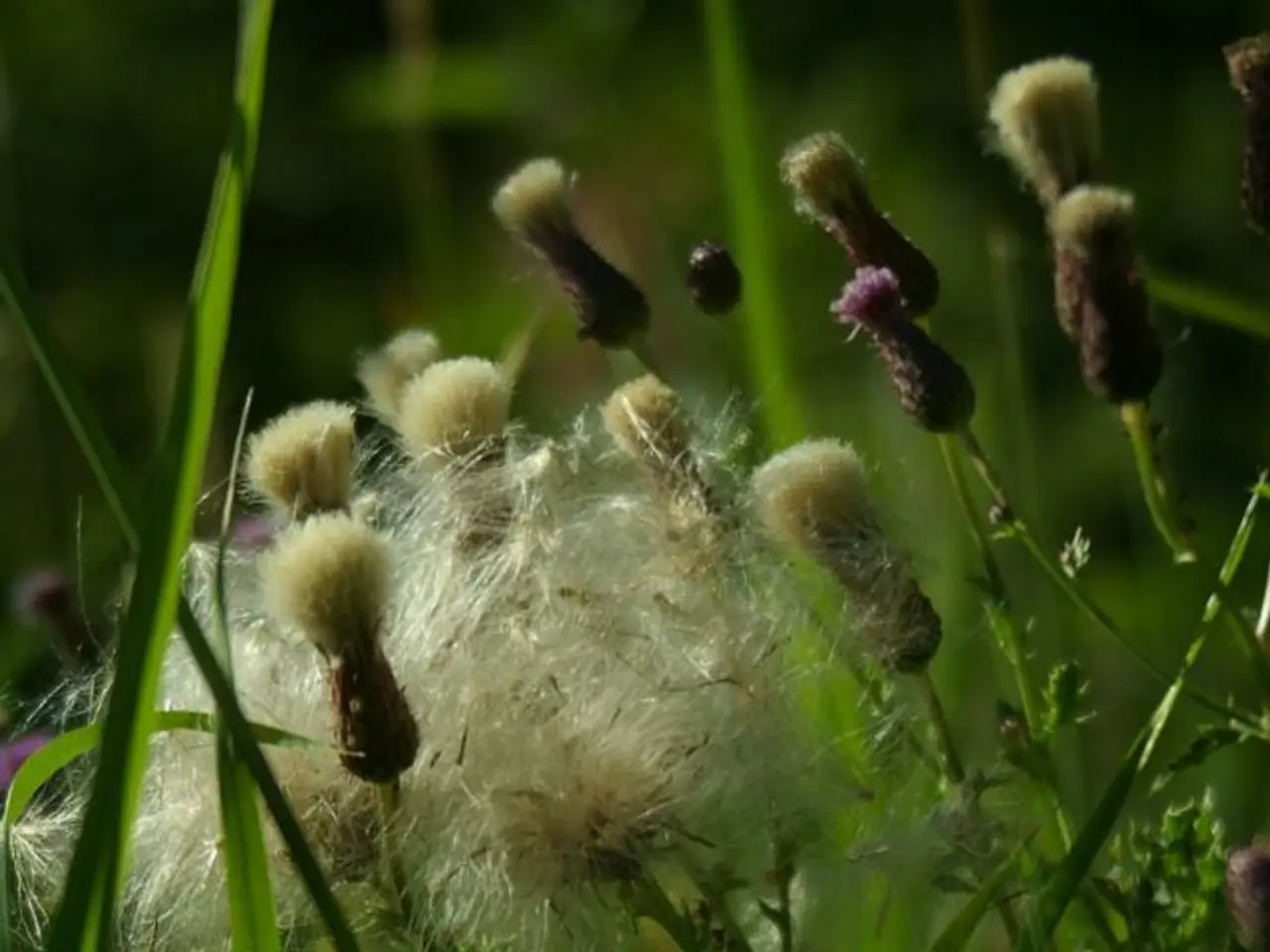Strategies for Naturally Increasing Produce in Your Garden Plot
In the realm of home gardening, there's a growing movement towards sustainable practices that not only nurture plants but also contribute to waste reduction and pest control. Here are some practical tips to help you get started.
Firstly, soft netting can be used to protect brassicas from cabbage white butterflies. By draping the netting over canes and securing it with tent pegs, you can prevent the butterflies from laying eggs on your precious crops.
Composting is another essential aspect of sustainable gardening. You can build a compost bin using simple materials such as wooden pallets, straw bales, or buckets. For instance, a straw bale bin can be created by arranging rectangular bales in a square without a lid to allow airflow, while wooden pallets can be constructed into a sturdy bin with corner braces and planks. Another low-cost option is a worm composter made from two 5-gallon buckets with holes drilled for drainage and red wiggler worms added to process kitchen scraps.
To make compost inside the bin, combine nitrogen-rich materials like kitchen scraps, grass clippings, coffee grounds with carbon-rich materials like dried leaves, straw, shredded newspaper in roughly equal volumes. This achieves a balanced carbon-to-nitrogen ratio, ideally around 30:1. Keep the compost moist like a wrung-out sponge and turn it regularly to introduce oxygen, which promotes decomposition and prevents odor.
If you're practicing hot composting, start with a pile at least 3 feet by 3 feet by 3 feet and mix coarsely chopped greens and browns with enough moisture. Turn the pile when the temperature starts to drop after peaking around 135°F to kill pathogens and weed seeds. For worm composting, add kitchen scraps atop the worms, cover them with moist shredded newspaper, and allow the worms to break down the material in the bucket system, draining excess liquid in the bottom bucket.
The composting process may take from several weeks to a few months; finished compost is dark, crumbly, and earthy-smelling and can be used to enrich garden soil and planting beds.
In addition to composting, there are other eco-friendly practices to consider. For instance, a container filled with the cheapest beer can be sunk into the soil as a trap for slugs and snails. Good ventilation, whether outside or indoors, is essential for disease prevention. Leaving space between plants encourages good air circulation, movement, and water evaporation.
No farm manure is used in the garden, and companion planting is a chemical-free method of attracting natural predators and controlling pests. For example, calendula flowers and foliage repel aphids, while borage is a bee magnet. Herbs such as mint and chives keep pests from attacking brassicas and carrots. Different flowers are grown among vegetables to attract predators for pest control.
In summer, watering the greenhouse floor and leaving out a bucket of water discourages spider mites. Green manure plants, such as field beans, Italian rye grass, phacelia, and buckwheat, are sown over bare ground in winter and summer to replenish soil nutrients and suppress weeds. Green manure plants are dug over the top growth into the soil in spring, where they rot down and feed vegetable crops.
For bigger flying pests, a hawk kite named Henry is used to control them, especially pigeons. These practices provide a practical, affordable way to recycle organic waste into nutrient-rich soil conditioner at home and create a thriving, chemical-free garden. Adjust the bin size and method depending on available space, materials, and how quickly you want compost produced.
- In the realm of home-and-garden, companion planting, a chemical-free method, is used to attract natural predators and control pests, such as planting calendula flowers and borage among vegetables to discourage aphids and attract beneficial insects.
- Pest control in gardening can also involve eco-friendly practices like using soft netting to protect brassicas from cabbage white butterflies, or a container filled with beer as a trap for slugs and snails.
- In terms of sustainable living, implementing a lifestyle that includes companion planting and composting at home can contribute to waste reduction and pest control, creating a thriving, chemical-free garden while promoting sustainable-living principles.




